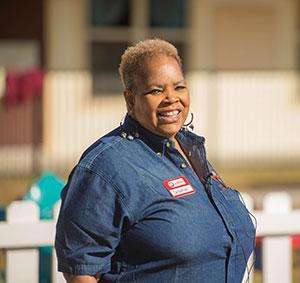
Texas Health and Human Services (HHS) employees dedicate themselves to ensuring that Texans receive the benefits for which they are qualified. But we can only go so far. We rely on caring people in our local communities giving their time and talents to provide things the state does not, such as mentoring children and learning to manage their benefits.
- Age Well Live Well brings community leaders and citizens together to provide programs and resources that help Texans age and live their very best.
- The Community Partner Program engages community organizations to help people learn to manage their benefits, including food, cash and medical assistance using YourTexasBenefits.com.
- Faith- and Community-based Initiatives forges stronger ties between HHS and faith- and community-based organizations, which in turn strengthens the capacity of those organizations.
- Community Access brings information about HHS services to their communities by helping organize community events and coordinate public meetings.
- Texas Works Path to Success is a pilot program offered in the Houston area to equip adults and high school seniors at selected schools to join the workforce and achieve economic stability.
Volunteer Opportunities with HHS
- The Foster Grandparent Volunteer Program recruits adults age 55 and older to provide one-on-one emotional support, mentoring and tutoring to children with exceptional needs.
- HHS offers unpaid internships and practicum opportunities to enrolled college students. Students can work in almost any part of the agency to gain valuable experience.
- Work in local HHS offices across the state providing clerical support to case managers, and screen, monitor and track client records to avoid delays in services.
- Share your time and talents at a nursing home or assisted living facility by bringing companionship to someone.
- Each state supported living center and state hospital has its own volunteer and internship program that provides opportunities and activities to enhance the quality of life for people with intellectual and developmental disabilities.
- Volunteer long-term care ombudsmen help people living in nursing homes and assisted living facilities resolve concerns. They are trained problem-solvers who help ensure residents’ rights and choices are respected.
- Volunteer benefits counselors are a trained to help people age 60 and older and people with disabilities who qualify for Medicare understand their benefits, entitlements and legal rights.
 An official State of Texas website.
An official State of Texas website.